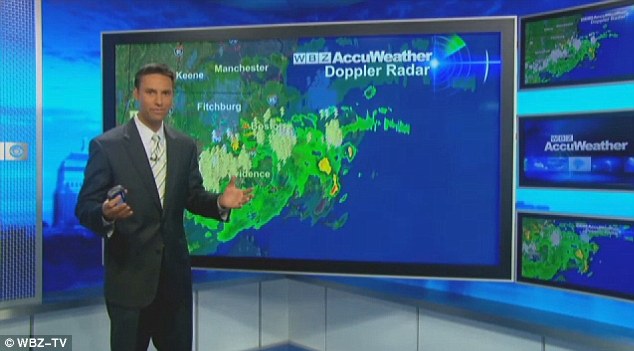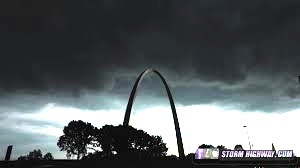
Another historical weather event in St Louis? From:http://www.dailymail.co.uk/news/article-2176259/Lightning-strikes-WBZ-TV-station-live-weather-report-startling-weatherman-whos-left-dark.html
“The Secret History of
St. Louis’ Weather and What
We Can Learn From It”
by Andrew Hurley
Weather rarely occupies a prominent place in the history of modern cities. The prospect of global warming and increasingly erratic weather patterns, however, demand that we take a closer look at how urban populations have responded and adapted to unusual weather conditions in the past. This presentation will review long-term weather trends in St. Louis and explore the ways that St. Louisans have responded to a variety of weather challenges in the past, including tornadoes, storms, and heat waves over the last century. It will also report on a recent community engagement project that employs historical research to help inner-city populations plan for the impacts of climate change. Over the past two years, faculty and students at the University of Missouri-St. Louis have partnered with grass-roots organizations in several St. Louis neighborhoods to identify climate-related liabilities and assets through the production of local landscape histories and citizen-generated photo narrations about meaningful places. This data has been fed into a variety of community planning exercises. The presentation will conclude with a more general assessment of how historical knowledge can enhance climate change preparedness at the neighborhood level.

Ominous clouds over St Louis. From stormhighway.com
Speaker bio for Andrew Hurley
Andrew Hurley is Professor of History at University of Missouri-St. Louis and has written extensively on issues of environmental justice, urban regeneration, and publicly-engaged scholarship. His books include Environmental Inequalities: Class, Race, and Industrial Pollution in Gary, Indiana, 1945-1980 (University of North Carolina Press, 1995) and Beyond Preservation: Using Public History to Revitalize Inner-Cities (Temple University Press, 2010). He is also the editor of Common Fields: An Environmental History of St. Louis (Missouri Historical Society Press, 1997). His research has been supported with funding from the US Environmental Protection Agency, the US Housing and Urban Development Agency, the National Endowment for the Humanities, the Institute for Museum and Library Services, and the National Science Foundation.
